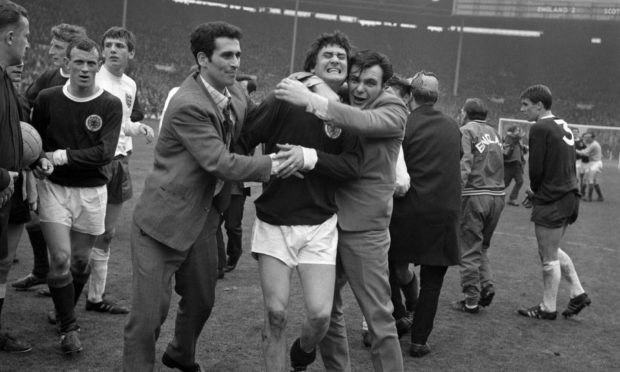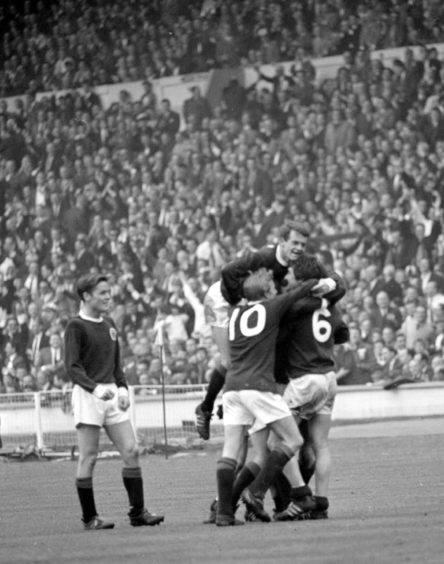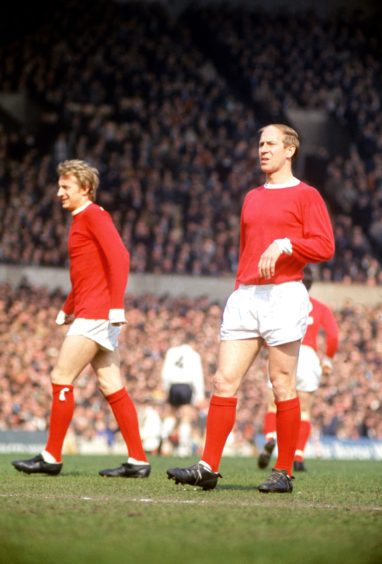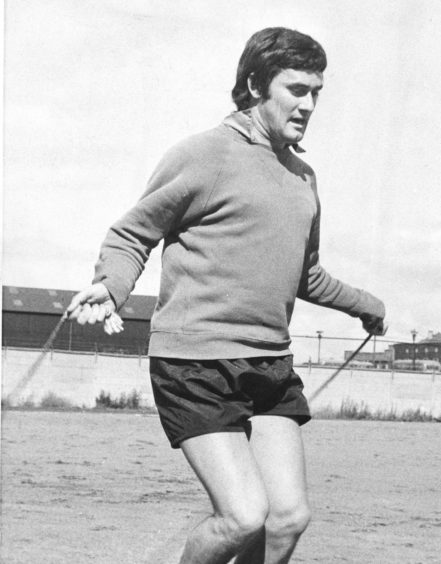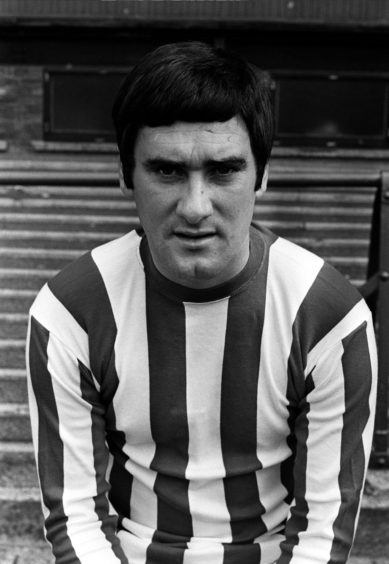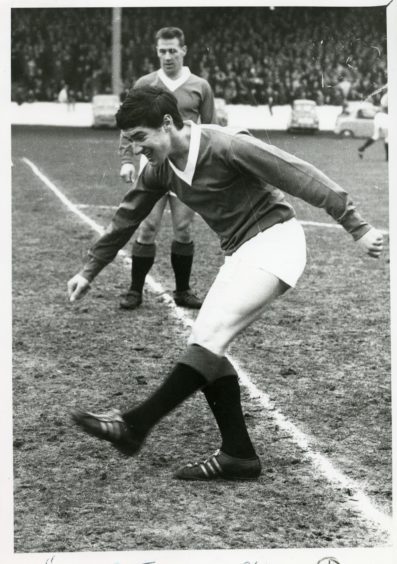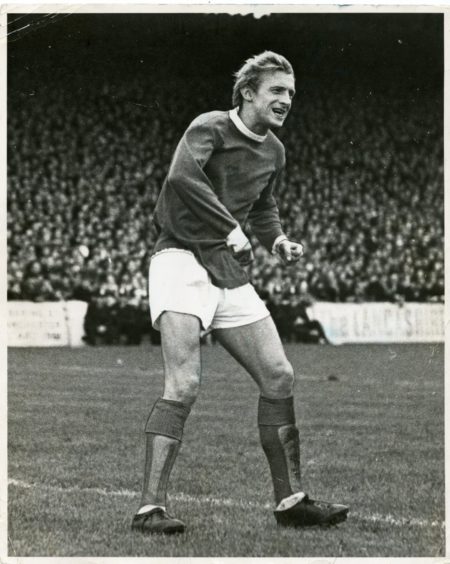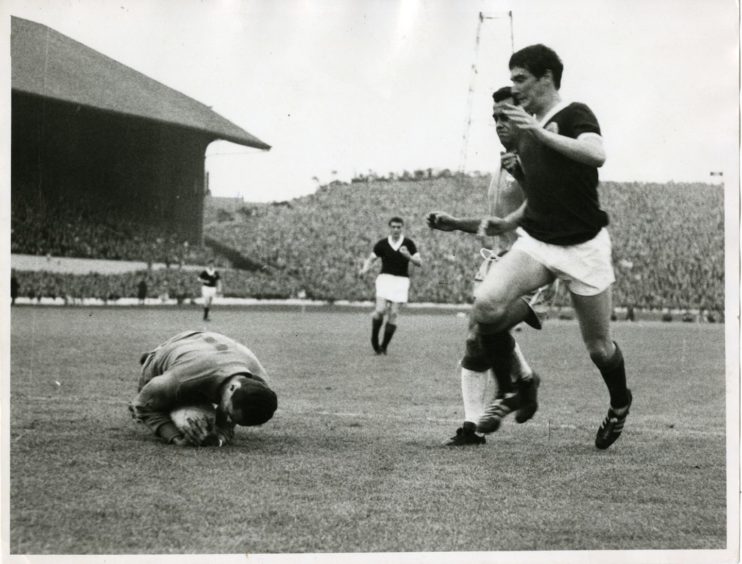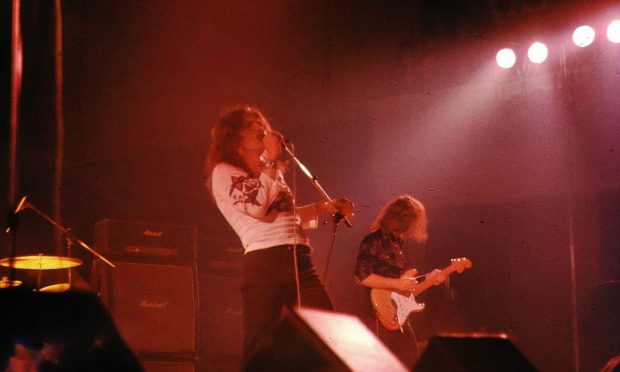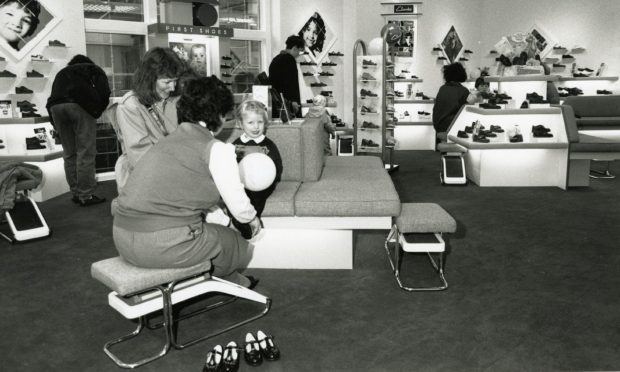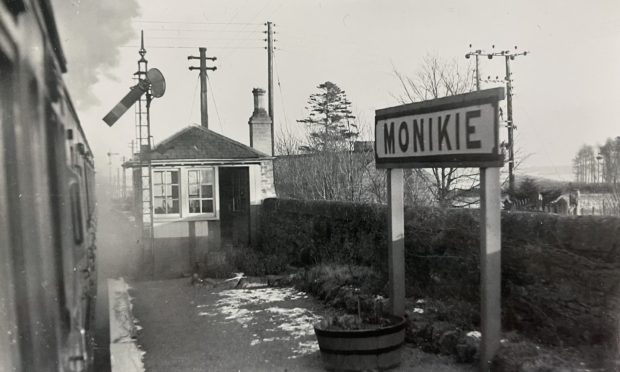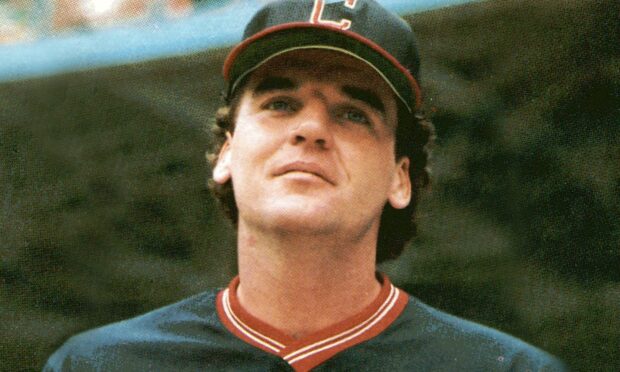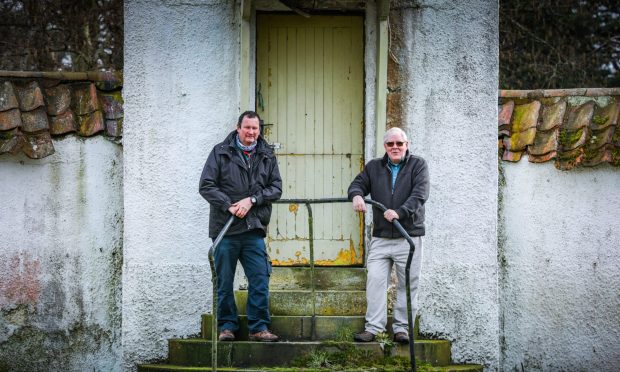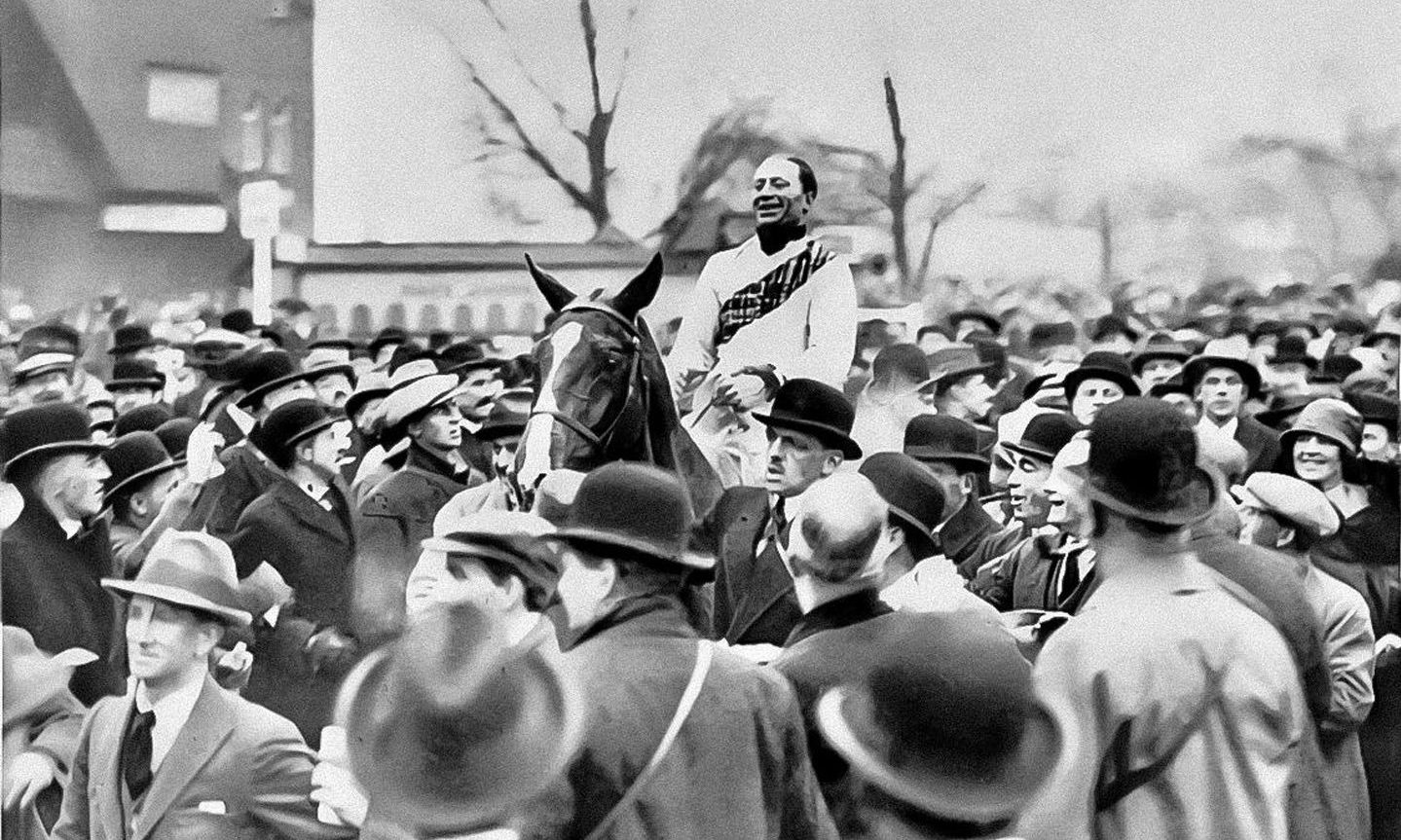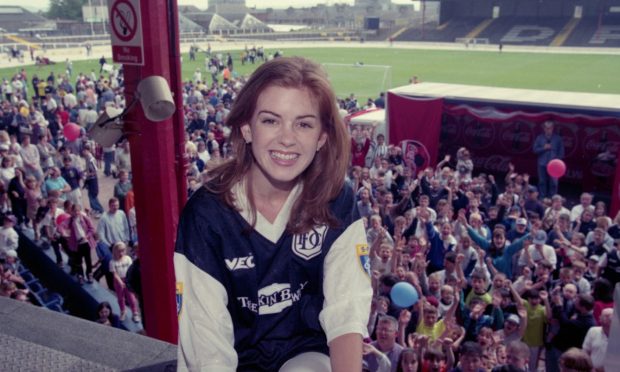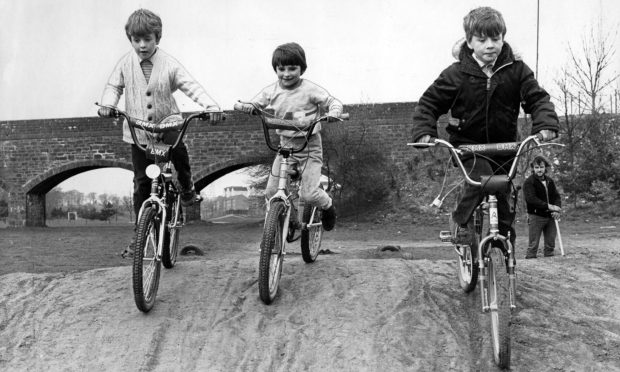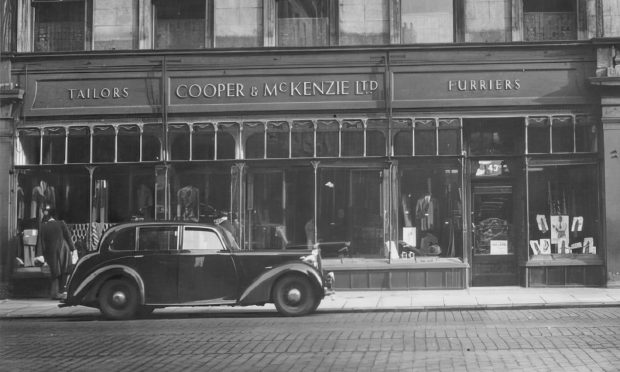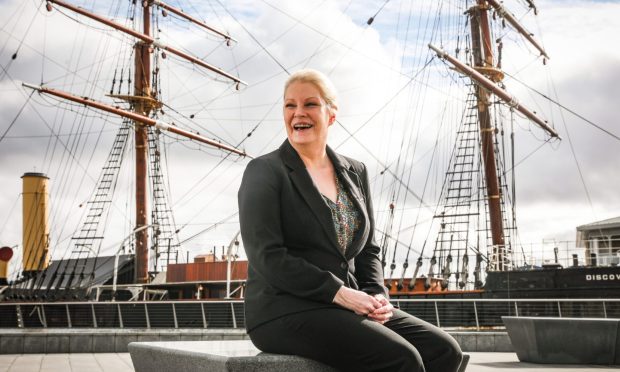He was a player with more tricks than Paul Daniels and the ability to leave opponents feeling as if they were chasing shadows.
And wherever he travelled, from Halbeath Juveniles to Crossgates Primrose and Raith Rovers, as the prelude to a glittering career with Rangers and Scotland, Jim Baxter was a larger-than-life extrovert with a shimmy, feint and joie de vivre who was revered by football aficionados across the world.
Pele proclaimed him an honorary Brazilian. Ferenc Puskas pronounced him one of the greatest talents of his generation.
Baxter and the latter went out on the town in Glasgow after the classic 1960 European Cup final between Real Madrid and Eintracht Frankfurt and although they could barely understand a word of the other’s conversation, they shared and revelled in the universal language of football.
It’s 20 years this week since “Slim Jim”, the former apprentice cabinet-maker and coalminer turned diamond dribbler, died of cancer, aged just 61.
His glittering charisma on the field was sadly matched by battles with alcohol and gambling off it. But nothing can diminish the Fifer’s reputation or detract from the fashion in which he created indelible memories for others to enjoy.
Statistics don’t do justice to Baxter’s genius
Some players are obsessed with accumulating trophies and amassing personal glory. But though Baxter enjoyed plenty success after joining Rangers in 1960, including winning three championship titles, three Scottish Cups and four League Cups – with him a pivotal figure in all seven finals – he was more about star quality than statistics and revelled as a product of the Swinging 60s.
He was a child of his time, so there were no eyebrows raised when he remarked of his new-found sex appeal after arriving at Ibrox: “One day, I was a Raith Rovers player who couldnae pull the birds at the Cowdenbeath Palais. The next day I was in Glasgow and the girls were throwing themselves at me.”
Yet Baxter was also untainted by any of the sectarian hatred which existed at the time. During his 18 Old Firm contests against Celtic from 1960 to 1965, he only finished up on the losing side twice, but he was friends with Billy McNeill and Pat Crerand and thrived in any company, as long as it wasn’t advising him to join a temperance movement.
The stars aligned for Baxter at Wembley
He was also involved in some famous victories on the international stage during his 34-cap career. There was the 2-1 triumph against England at Wembley in 1963 when the Scots transcended the loss of Eric Caldow, who suffered a broken leg at a time when substitutions weren’t allowed, and Baxter scored a brace with the spontaneous enthusiasm of a child being granted the keys to a chocolate factory.
At the climax, England talisman Bobby Moore said it was the best Scotland team he had ever faced. And with stellar figures such as Baxter, Denis Law, John White and Dave Mackay in their ranks, it was hard to disagree.
As Law recalled this week: “Jim was a top man. One of the best passers of the ball you would ever see. He had all the skills and could make and score goals.
“He was the sort of character who would beat a player and then stop and try to beat him again. He was extremely confident on the ball and great to play alongside. And he was very popular among players and fans.
“The era in which we played included fabulous players such as Billy Bremner, John White and Billy McNeill, to name just a few, and Jim was one of these.”
Baxter was close to becoming a Red Devil
It’s one of the great ‘What if’ sporting questions: how might Baxter’s career have panned out if he had joined the likes of Law, George Best and Bobby Charlton at Old Trafford when he was just 23 in the winter of 1963?
Such a scenario was close to happening, because Man Utd chairman Matt Busby actively discussed signing the Rangers man and it boiled down to a choice between him and Pat Crerand being offered the opportunity to become a Red Devil at a time when such an offer was difficult to resist.
However, the matter was resolved when Busby sought out the views of the Aberdeen-born Law, who was fully appreciative of Baxter’s myriad qualities, but was concerned about the impact he might have on the club’s team ethic.
“He preferred Jim at that stage, but I told him: ‘Well, to be fair, Jim is a better player than Pat Crerand, but if you want a long-term investment, I think you would be better off signing Pat’.
“Jim was the more skilful player of the two, of that there was no doubt, but he was too much of an individual at times. I just felt that if Matt was building for the future, Crerand would turn out to be a stronger, more dedicated player who would give the club more value.
“So Matt bought Paddy and Jim eventually went to Sunderland [in 1965], which wasn’t a particularly good move for him. Ian McCall had become the manager of Sunderland and they were pals, but Jim should really have gone to London or Manchester.”
It was a pragmatic judgment, but although 1963 was Baxter’s annus mirabilis, there were already indications his devil-may-care temperament might prove self-destructive. A situation which only worsened as the years advanced.
Yet we’ll always have the memories – and the pictures – of a special day in 1967 when he cast his imprint over one of Scotland’s most cherished afternoons.
Taking the mickey against the world champions
“The way Jim sidled free, went on a merry spree, and silenced Wembeleey…no no, they can’t take that away from me.”
Alright, the Gershwin brothers were never soccer fans, but these were the sentiments among the majority of the Tartan Army after Scotland powered to a convincing 3-2 win over World Cup winners England in London in 1967.
It’s one of the most hallowed occasions in football history and also provided one of its most iconic vignettes when Baxter, joyfully disinclined to treat his rivals with any respect, indulged in a spot of keepie-uppie as the home crowd watched their heroes flounder with sullen disbelief.
The visitors dominated the proceedings with goals from Law, Lennox and Jim McCalliog, while Jack Charlton and Geoff Hurst scored for the hosts.
But the contrasting reaction of Baxter and Law told its own story of how the former’s antics were not universally applauded.
Jim’s warm-up was reading the Racing Post
There might have been nerves swirling around the Scotland dressing room as they steeled themselves for the challenge of tackling the Auld Enemy.
But 10 minutes before the game began, Baxter was studying the form in the Racing Post and wondering what horses to back.
When the Scotland trainer suggested he might want to engage in a warm-up, prior to participating in the most important game in his country’s calendar, Baxter stretched out his left leg and then his right.
“That’s me warmed up,” he said, his eyes still fixed on the paper.
By now, he and discipline went together like Hannibal Lecter and veganism. And yet, despite being patently out of condition, he still possessed enough slivers of genius left in his armoury to orchestrate proceedings.
Law, by comparison, had never shrugged off the desperate recollection of the afternoon in 1961 when he and the rest of the Scots were thrashed 9-3 by England at the same venue. One of the worst experiences of his life.
Just a few months earlier, he had been on the golf course when Alf Ramsey’s team lifted the Jules Rimet trophy. Therefore, when the Scots went 2-0 up with Lennox’s goal in the 78th minute, he was determined to help his side record a really convincing victory with another couple of goals.
In the event, matters grew increasingly frenetic in the closing stages and Law had mixed emotions at the end of the contest. On the one hand, he declared that Baxter had been “the best player on the park”.
On the other, there was frustration at how the scoreline suggested it had been a close encounter when it was nothing of the kind.
As Law said: “Jim loved to ‘take the mickey’ and at Wembley in 1967 he chose to play keepie-uppie when I would have preferred to go after more goals.”
Jim Baxter admitted he made mistakes
It’s one of the saddest aspects of Baxter’s career that, rather like Marilyn Monroe, the candle burned out long before the legend ever did.
He was finished as a professional player following ill-fated spells at Sunderland and Nottingham Forest – and a brief foray with Vancouver Royal Canadians – and was just 31 when he exited the game after returning to Ibrox.
His latter years were plagued by illness, with him requiring two liver transplants and then succumbing to pancreatic cancer on April 14 2001.
But he left behind a remarkable legacy with Sir Alex Ferguson describing him as “arguably the best player to play in Scottish football” and “the greatest player I ever played with’.
“He had touch, balance, vision and this wonderful aura about him.”
The funeral packed out Glasgow 20 years ago
Denis Law was among the mourners at Baxter’s funeral two decades ago when the streets of Glasgow were packed with people paying their respects.
Ultimately, he was his own worst enemy, but the joy which he brought to millions of his compatriots will never be forgotten.
As Law said: “When I went to his funeral, the turn-out was fantastic, it was unbelievable. The service was held at a huge church in the centre of Glasgow, and several players spoke and it was very moving.
“You couldn’t help but love the man.”
It’s not a bad epitaph for anybody, is it!
EYEWITNESS: Manchester United hero Denis Law rose from humble beginnings to become a world great
